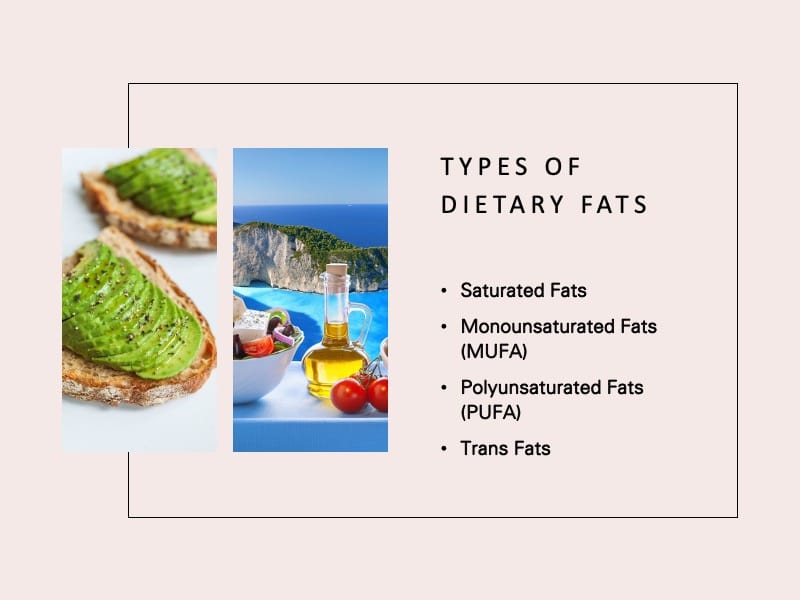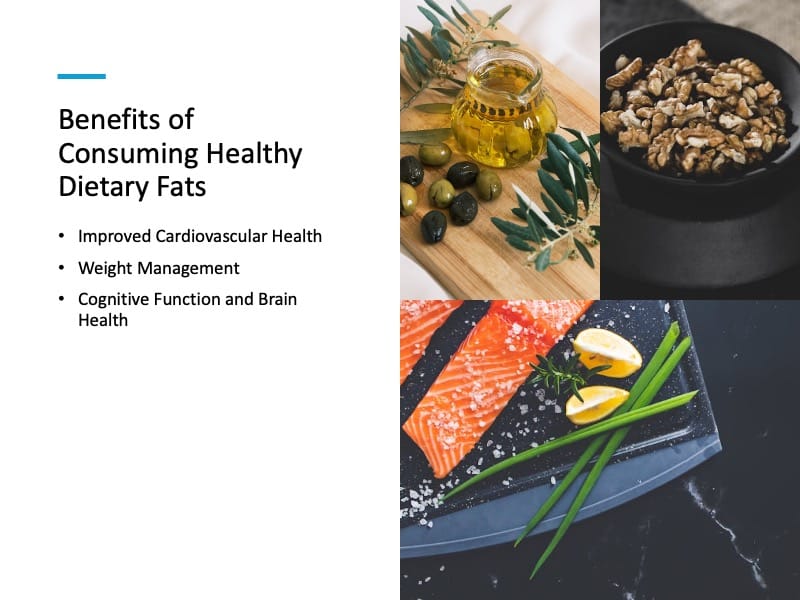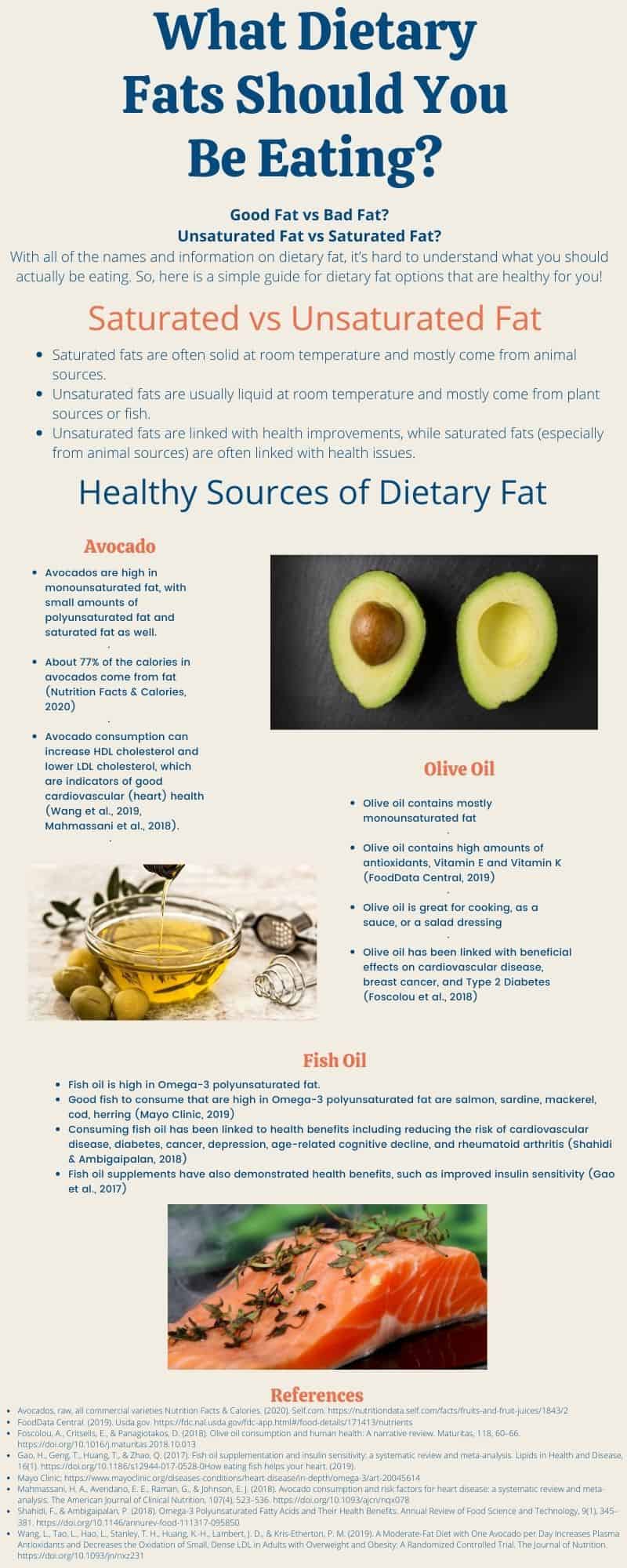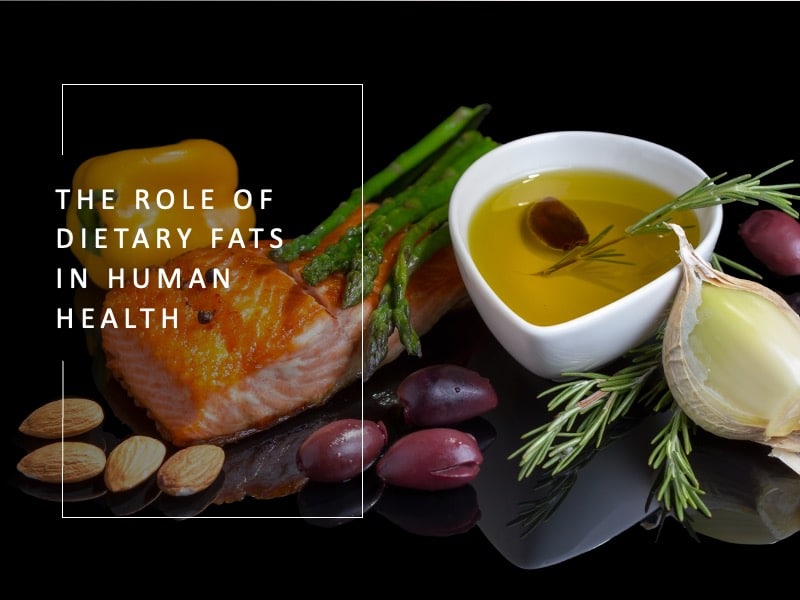The Role of Dietary Fats in Human Health
For decades, dietary fats were unfairly blamed for weight gain, heart disease, and a host of other health concerns.
“Low-fat” and “fat-free” labels flooded grocery store shelves, reinforcing the belief that avoiding fat was the key to a healthier life.
However, as science has evolved, so has our understanding of nutrition.
Dietary fat is not the enemy—it’s a fundamental building block of optimal health, energy production, and longevity.
Fats do far more than just add flavor to food; they are essential for sustaining life.
They serve as the body’s most concentrated source of energy, help build and maintain cell membranes, and play a vital role in absorbing crucial fat-soluble vitamins—A, D, E, and K.
Without adequate fat intake, our bodies struggle to regulate hormones, maintain cognitive function, and control inflammation.
But here’s where it gets even more interesting—not all fats affect the body the same way.
Some can be powerful allies in protecting against disease, while others may increase the risk of chronic conditions when consumed in excess.
The key is knowing which fats to prioritize and how to balance them for better health, improved metabolism, and sustained energy levels.
In this article, you’ll discover the real science behind dietary fats, debunk outdated myths, and learn practical strategies for optimizing fat intake to enhance your well-being.
Whether you’re looking to boost brain function, support heart health, or maximize your energy levels, understanding how dietary fats work in your body is a game-changer!
Types of Dietary Fats

Understanding the different types of dietary fats is crucial for optimizing health.
Not all fats are created equal—some promote health, while others can be detrimental when consumed in excess.
Saturated Fats
Saturated fats, found in animal products like butter, cheese, red meat, and plant-based sources like coconut oil and palm oil, have long been a controversial topic in nutrition.
While past dietary guidelines linked saturated fat consumption with increased LDL (“bad”) cholesterol and cardiovascular disease, modern research paints a more nuanced picture (Sacks et al., 2017).
The effects of saturated fat on heart health are highly dependent on food quality, dietary patterns, and individual metabolic responses (Astrup et al., 2020).
Saturated Fats for Cooking Stability
One of the overlooked benefits of saturated fats is their stability during cooking.
Unlike polyunsaturated fats (PUFAs), which are highly reactive and prone to oxidation at high temperatures, saturated fats have a more stable molecular structure.
This means they are less likely to produce harmful free radicals when exposed to heat, making them a better choice for frying, sautéing, and roasting (Silva et al., 2021).
Cooking oils high in polyunsaturated fats, such as soybean and canola oil, degrade under heat and create oxidized lipids that may contribute to inflammation and chronic disease.
Ideal cooking fats high in saturated fats include:
- Ghee (clarified butter) – Rich in fat-soluble vitamins and has a high smoke point.
- Coconut oil – Contains medium-chain triglycerides (MCTs) that provide quick energy.
- Beef tallow – A traditional cooking fat that adds flavor and stability.
Using saturated fats for cooking not only enhances flavor but may also reduce the formation of harmful oxidation products compared to unstable vegetable oils.
Saturated Fats and Testosterone Production in Men
Saturated fats play a key role in hormone synthesis, particularly testosterone production in men.
Testosterone is derived from cholesterol, and dietary fats—especially saturated fats—are essential for maintaining healthy testosterone levels (Volek et al., 1997).
Studies have shown that diets low in fat, particularly saturated fat, can lead to reduced testosterone levels, which may negatively impact muscle growth, fat metabolism, and overall vitality (Dorgan et al., 1996).
Men who engage in intense physical training or resistance exercise may benefit from moderate consumption of saturated fats to support optimal hormone production.
Whole food sources such as grass-fed beef, pasture-raised eggs, and full-fat dairy contain essential nutrients like vitamin D, zinc, and cholesterol, all of which contribute to testosterone synthesis and overall endocrine health.
The Nuanced Role of Saturated Fat in Heart Health
While saturated fats have been historically blamed for raising LDL cholesterol, not all LDL cholesterol is harmful. LDL particles come in different sizes, and research suggests that larger, more buoyant LDL particles are less likely to contribute to atherosclerosis compared to small, dense LDL particles (Ravnskov et al., 2014).
Interestingly, saturated fats may increase large, fluffy LDL particles while improving HDL (“good”) cholesterol, leading to a potentially neutral or even beneficial effect on cardiovascular health when consumed as part of a balanced diet (Siri-Tarino et al., 2010).
Whole food sources of saturated fats, such as:
- Grass-fed dairy (butter, yogurt, cheese)
- Pasture-raised eggs
- Unprocessed red meat
…may not have the same health risks as processed foods containing industrial trans fats or excessive amounts of refined carbohydrates (Astrup et al., 2020).
A Balanced Approach to Saturated Fat
The key takeaway is that saturated fats should not be demonized—their impact depends on food quality, dietary balance, and individual health factors.
While excessive consumption of processed foods high in saturated fats may contribute to health risks, whole food sources of saturated fat provide essential nutrients, support hormone production, and serve as stable cooking fats.
By choosing high-quality sources and balancing saturated fat intake with other healthy fats, individuals can leverage these nutrients to enhance metabolic health, optimize hormone function, and improve cooking practices for overall well-being.
Monounsaturated Fats (MUFA)
Monounsaturated fats (MUFAs) are a category of healthy dietary fats found in olive oil, avocados, nuts, and seeds.
Unlike saturated fats, which are fully saturated with hydrogen atoms, MUFAs have one double bond in their molecular structure, making them more flexible and beneficial for cell membrane integrity and metabolic function.
Heart Health and Cholesterol Balance
MUFAs have been extensively studied for their cardiovascular benefits, particularly their impact on cholesterol levels.
They help reduce LDL (“bad”) cholesterol while preserving or even increasing HDL (“good”) cholesterol (Mensink, 1994).
Lower LDL levels reduce plaque buildup in the arteries, while higher HDL levels enhance the removal of excess cholesterol from the bloodstream.
This balance plays a significant role in reducing the risk of atherosclerosis and heart disease (Schwingshackl & Hoffmann, 2014).
A key example is the Mediterranean diet, which is naturally high in MUFAs due to its emphasis on olive oil, nuts, seeds, and fish.
Studies on this dietary pattern have demonstrated a significant reduction in cardiovascular disease, stroke, and overall mortality rates (Estruch et al., 2018).
Anti-Inflammatory and Antioxidant Benefits
MUFAs also exert powerful anti-inflammatory effects, which are crucial for preventing chronic diseases like diabetes, arthritis, and neurodegenerative conditions (Kurowska et al., 2023).
One of the main compounds responsible for these benefits is oleic acid, the predominant MUFA found in olive oil and avocados.
- Oleic acid helps reduce inflammatory markers such as C-reactive protein (CRP), which is associated with heart disease and metabolic disorders (Basu et al., 2005).
- Olive oil contains polyphenols that act as antioxidants, helping to protect cells from oxidative stress and damage linked to aging and chronic disease (Estruch et al., 2018).
- Avocados and nuts contain fiber and plant sterols, which contribute to lower blood pressure and improved insulin sensitivity (National Heart, Lung & Blood Institue).
Monounsaturated Fats and Weight Management
Despite misconceptions that dietary fat leads to weight gain, MUFAs can actually support weight management.
Foods rich in MUFAs promote satiety, helping to regulate appetite and reduce overall caloric intake (Schwingshackl & Hoffmann, 2014).
- Studies suggest that replacing refined carbohydrates with MUFAs helps maintain a healthy weight and reduces visceral fat accumulation, which is strongly linked to metabolic disease (Gower & Goss, 2015).
- Avocados, in particular, have been shown to reduce hunger and improve meal satisfaction compared to meals high in refined carbs (Okobi et al., 2023).
This makes MUFAs an essential component of weight loss and weight maintenance strategies, particularly for those following Mediterranean-style or low-carb diets.
Monounsaturated Fats and Brain Health
The benefits of MUFAs extend beyond heart health and metabolism—they also support brain function and cognitive performance.
- MUFAs contribute to neuroprotection by reducing oxidative stress and inflammation in the brain (Gómez-Pinilla, 2008).
- Higher MUFA intake has been linked to better memory, learning ability, and a lower risk of neurodegenerative diseases like Alzheimer’s (Solfrizzi et al., 2011).
- The anti-inflammatory effects of MUFAs may also support mental health, reducing the risk of depression and anxiety (Sánchez-Villegas et al., 2011).
Best Sources of Monounsaturated Fats
To maximize MUFA intake, incorporate the following nutrient-dense foods:
- Extra virgin olive oil – A staple of the Mediterranean diet, packed with antioxidants and polyphenols.
- Avocados – Rich in fiber, potassium, and heart-healthy monounsaturated fats.
- Nuts – Almonds, cashews, macadamia nuts, and hazelnuts provide healthy fats along with protein and essential minerals.
- Seeds – Pumpkin seeds and sesame seeds contain MUFAs and beneficial plant sterols.
- Dark chocolate (70%+ cacao) – A delicious source of MUFAs with antioxidants that support heart and brain health.
Polyunsaturated Fats (PUFA)
Polyunsaturated fats (PUFAs) are essential dietary fats that play a critical role in cardiovascular health, brain function, immune regulation, and inflammation control.
Unlike saturated and monounsaturated fats, PUFAs contain multiple double bonds, making them more flexible but also more susceptible to oxidation (Calder, 2017).
The two main types—omega-3 and omega-6 fatty acids—are essential because the body cannot produce them and must obtain them from food.
However, while both are necessary, the modern Western diet contains an excess of omega-6 compared to omega-3, contributing to increased inflammation and disease risk (Simopoulos, 2016).
Omega-3 Fatty Acids
Omega-3 fatty acids, primarily found in fatty fish, flaxseeds, and walnuts, provide well-documented anti-inflammatory and heart-protective benefits.
They exist in three primary forms:
- Eicosapentaenoic acid (EPA): Primarily found in fatty fish, EPA plays a key role in reducing inflammation and supporting cardiovascular health. Research indicates that higher EPA levels are associated with reduced cardiovascular events and stroke risk (Mason et al., 2020).
- Docosahexaenoic acid (DHA): DHA is essential for brain function, cognitive performance, and neuroprotection. It is a major component of neuronal cell membranes and the retina, and higher DHA intake has been linked to a lower risk of neurodegenerative diseases such as Alzheimer’s (Yurko-Mauro et al., 2010).
- Alpha-linolenic acid (ALA): Found in plant-based sources like flaxseeds, chia seeds, and walnuts, ALA can be converted into EPA and DHA, but at a very limited rate. Increasing ALA intake has been associated with lower overall mortality rates (Pan et al., 2012).
Research consistently shows that higher omega-3 intake reduces the risk of heart disease, lowers triglycerides, and improves endothelial function (Mozaffarian & Wu, 2012).
Studies also link DHA to improved cognitive performance and a reduced risk of neurodegenerative diseases such as Alzheimer’s (Yurko-Mauro et al., 2010).
Additionally, omega-3s support mental health, with supplementation associated with lower rates of depression and anxiety (Grosso et al., 2014).
Omega-6 Fatty Acids
Omega-6 fatty acids, found in vegetable oils such as soybean, corn, sunflower, and safflower oil, are also necessary for immune function and cell membrane integrity.
However, excessive intake—especially without adequate omega-3s—has been linked to increased inflammation, a key factor in chronic diseases like arthritis, obesity, and cardiovascular conditions (Calder, 2017).
Historically, human diets had an omega-6 to omega-3 ratio of about 1:1 to 4:1, but modern diets often exceed 15:1, promoting pro-inflammatory pathways (Simopoulos, 2016).
Some studies suggest that excessive omega-6 intake relative to omega-3 may also contribute to mood disorders and cognitive decline (Grosso et al., 2014).
How to Balance Omega-3 and Omega-6 Fatty Acid Intake
Rather than eliminating omega-6 fats, the goal is to balance them with sufficient omega-3 intake.
- Choose whole food sources of omega-6s, such as nuts and seeds, rather than processed vegetable oils.
- Replace refined vegetable oils with healthier alternatives such as extra virgin olive oil, avocado oil, or coconut oil.
- Increase omega-3 intake by eating more fatty fish, flaxseeds, and walnuts.
- Limit processed and fried foods, which are often cooked in oxidized and unstable omega-6 oils.
Trans Fats
Trans fats, primarily found in partially hydrogenated oils, have been largely removed from the food supply due to their association with increased LDL cholesterol, inflammation, and a heightened risk of cardiovascular disease (Mozaffarian et al., 2006).
These fats should be completely avoided whenever possible.
Studies have shown that even small amounts of trans fats can significantly raise the risk of heart disease, with one analysis estimating that eliminating trans fat from diets could prevent thousands of cardiovascular-related deaths each year (Mozaffarian et al., 2006).
Additionally, trans fats have been linked to insulin resistance and an increased risk of type 2 diabetes, making them particularly harmful for metabolic health (de Souza et al., 2015).
While industrial trans fats have been banned in many countries, small amounts may still be present in some processed and fast foods, so careful label reading is advised.
Benefits of Consuming Healthy Dietary Fats

Healthy fats play a crucial role in cellular function, inflammation control, and nutrient absorption.
They help maintain stable energy levels, improve cardiovascular health, and support cognitive performance.
In addition, certain fats have powerful anti-inflammatory properties, reducing the risk of chronic diseases such as diabetes, arthritis, and neurodegenerative conditions.
This section explores the key benefits of consuming healthy dietary fats, highlighting how they contribute to overall well-being and how different types of fats impact various aspects of health.
By making informed dietary choices, individuals can harness the power of fats to enhance physical performance, mental clarity, and long-term health.
Improved Cardiovascular Health
For decades, reducing saturated fat intake was the cornerstone of cardiovascular disease prevention.
However, replacing saturated fats with refined carbohydrates has not been shown to improve heart health (Mensink, 2016).
Instead, replacing saturated fats with unsaturated fats—particularly PUFAs—significantly reduces the risk of heart disease.
The Mediterranean diet, rich in olive oil, nuts, and fatty fish, is associated with lower LDL cholesterol, reduced inflammation, and improved overall heart health (Estruch et al., 2018).
Weight Management
Contrary to outdated recommendations that emphasized low-fat diets for weight loss, higher-fat diets can be beneficial for weight management.
Healthy fats promote satiety, reducing overall calorie intake (Samra, 2010).
Diets like the Mediterranean diet and ketogenic diet, which incorporate healthy fats while limiting processed carbohydrates, have been linked to sustainable weight loss and metabolic improvements (Ludwig & Ebbeling, 2018).
Cognitive Function and Brain Health
The brain is composed of approximately 60% fat, making dietary fats crucial for cognitive function (Bazinet & Layé, 2014).
Omega-3 fatty acids, particularly DHA, are essential for memory retention and mental health.
Diets rich in omega-3s have been associated with a lower risk of neurodegenerative diseases, including Alzheimer’s disease (Morris et al., 2015).
Moreover, adequate fat intake is necessary for mood regulation, with deficiencies linked to depression and anxiety.
Best Sources of Healthy Dietary Fats

Incorporating high-quality dietary fats into your diet is essential for heart health, brain function, hormone production, and overall well-being.
The best sources of healthy fats come from whole, minimally processed foods that provide essential fatty acids, antioxidants, and other beneficial compounds.
Best Monounsaturated Fat Sources
Monounsaturated fats (MUFAs) are known for their heart-protective benefits, as they help lower LDL (“bad”) cholesterol while maintaining HDL (“good”) cholesterol levels.
- Extra Virgin Olive Oil: One of the healthiest oils, rich in antioxidants and polyphenols that reduce inflammation and protect cardiovascular health (Estruch et al., 2018).
- Avocados: Packed with monounsaturated fats, fiber, potassium, and antioxidants, avocados support heart and brain health (Fulgoni et al., 2013).
- Nuts: Almonds, cashews, macadamia nuts, and hazelnuts are excellent sources of MUFAs, as well as vitamin E, which supports skin and immune function.
- Seeds: Pumpkin seeds and sesame seeds contain beneficial monounsaturated fats along with protein, fiber, and minerals.
- Dark Chocolate (70%+ cacao): A source of healthy fats and flavonoids, dark chocolate supports cardiovascular health and brain function (Mastroiacovo et al., 2015).
Polyunsaturated Fat Sources
Polyunsaturated fats (PUFAs), including omega-3 and omega-6 fatty acids, are essential for brain function, inflammation control, and overall metabolic health.
Best Omega-3 PUFA-Rich Foods:
- Fatty Fish: Salmon, sardines, mackerel, and trout are high in EPA and DHA, which support heart health, cognitive function, and inflammation reduction (Mozaffarian & Wu, 2012).
- Flaxseeds and Chia Seeds: Flaxseseeds and chia seeds are plant-based sources of ALA (alpha-linolenic acid), which the body converts into EPA and DHA (albeit at a low rate). These seeds are also high in fiber.
- Walnuts: One of the best plant-based omega-3 sources, walnuts also provide polyphenols that support brain and heart health (Arab et al., 2018).
- Algae-Based Omega-3 Supplements: A vegan alternative for obtaining DHA and EPA, particularly beneficial for individuals who do not consume fish.
- Fish Oil Supplements: A concentrated source of EPA and DHA, fish oil supplements provide a convenient way to increase omega-3 intake. Research shows that high-quality fish oil supplements can improve heart health, reduce inflammation, and support cognitive function (NIH). When choosing a fish oil supplement, look for third-party testing for purity, sustainability, and freshness to avoid oxidation and contaminants.
Best Omega-6 PUFA-Rich Foods:
While omega-6 fats are essential, they should be consumed in moderation and balanced with omega-3 intake.
Whole food sources of omega-6s are preferable to processed vegetable oils.
- Sunflower Seeds and Pumpkin Seeds: Provide omega-6 fatty acids along with important vitamins and minerals.
- Sesame Seeds: Rich in lignans and omega-6 fats, sesame seeds support heart health and metabolic function.
Best Saturated Fat Sources
Saturated fats, once thought to be harmful, are now recognized as an important part of a balanced diet when consumed from whole food sources.
- Grass-Fed Butter and Ghee: Rich in fat-soluble vitamins (A, D, E, and K) and conjugated linoleic acid (CLA), which may support metabolism and immune function.
- Coconut Oil: Contains medium-chain triglycerides (MCTs) that provide a quick energy source and may support brain health (Cunnane et al., 2016).
- Pasture-Raised Eggs: A great source of protein, healthy fats, and choline, which supports brain and liver function.
- Grass-Fed Beef and Lamb: Provide high-quality saturated fats, omega-3s, and essential nutrients like iron and zinc.
- Full-Fat Dairy (Yogurt, Cheese, Milk): When sourced from grass-fed cows, dairy products contain beneficial fats and bioactive compounds that support gut and metabolic health.
Best Healthy Fats to Use as Cooking Oils
The choice of cooking oils is important to prevent oxidation and maintain the integrity of healthy fats.
- Extra Virgin Olive Oil: Best used for low-to-medium heat cooking, drizzling, and salad dressings.
- Avocado Oil: A high-smoke point oil that is stable for high-heat cooking, such as sautéing and roasting.
- Coconut Oil: Works well for high-heat cooking due to its stability, making it ideal for baking and frying.
- Ghee (Clarified Butter): Highly stable for high-heat cooking, rich in fat-soluble vitamins and healthy saturated fats.
- Grass-Fed Tallow: A traditional cooking fat with a high smoke point, ideal for frying and roasting.
Avoid highly processed vegetable oils such as soybean oil, corn oil, and sunflower oil, as they are prone to oxidation and can contribute to inflammation.
Final Thoughts: Practical Recommendations for Healthy Dietary Fat Intake
Dietary fat is an essential component of a balanced diet, with distinct health benefits depending on the type and source.
Emphasizing high-quality fat sources while reducing reliance on processed foods and refined carbohydrates supports cardiovascular health, weight management, and cognitive function.
Instead of fearing fats, nutrition recommendations should focus on promoting whole food dietary patterns rather than restricting total fat intake.ou
This website does not provide medical advice. This website site does contain affiliate links, and purchases may earn a commission.
Read my Medical Disclaimer, Review Disclaimer, and Publishing Policies for more details. Use of this site indicates acceptance of these terms.



